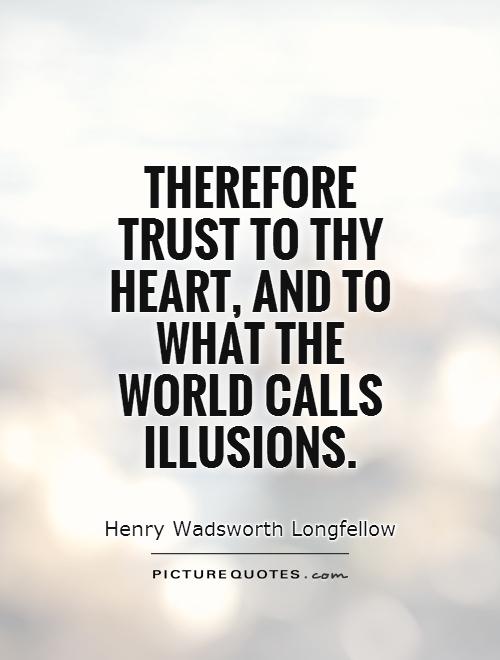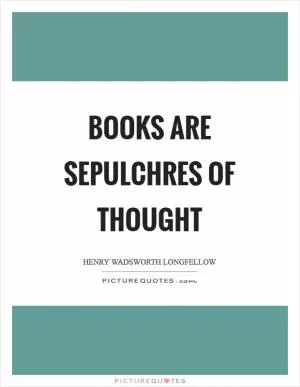Therefore trust to thy heart, and to what the world calls illusions

Therefore trust to thy heart, and to what the world calls illusions
Henry Wadsworth Longfellow, one of the most beloved American poets of the 19th century, often explored themes of love, nature, and the human experience in his works. In his poem "A Psalm of Life," Longfellow encourages readers to trust in their hearts and what the world may perceive as illusions. This sentiment is echoed in the line, "Therefore trust to thy heart, and to what the world calls illusions."Longfellow believed in the power of the human heart to guide us in the right direction and to lead us towards our true purpose in life. He understood that the world may try to deceive us with false promises and distractions, but he urged his readers to trust in their innermost feelings and instincts. Longfellow believed that our hearts hold the key to our true desires and aspirations, and that by following our hearts, we can find fulfillment and happiness.
The idea of trusting in illusions may seem contradictory at first, but Longfellow suggests that sometimes what the world perceives as illusions may actually be our deepest truths. He believed that our hearts have the ability to see beyond the surface and to recognize the beauty and truth in things that may seem unreal or impossible to others. By trusting in our hearts and embracing what the world may dismiss as illusions, we can tap into our innermost desires and dreams, and find the courage to pursue them.
Longfellow's words serve as a reminder to listen to our hearts and to trust in our instincts, even when the world may try to lead us astray. By following our hearts and embracing what may seem like illusions, we can discover our true purpose and find meaning in our lives. Longfellow's message is a timeless one that continues to resonate with readers today, encouraging us to trust in ourselves and to follow our hearts, no matter what the world may say.












 Friendship Quotes
Friendship Quotes Love Quotes
Love Quotes Life Quotes
Life Quotes Funny Quotes
Funny Quotes Motivational Quotes
Motivational Quotes Inspirational Quotes
Inspirational Quotes